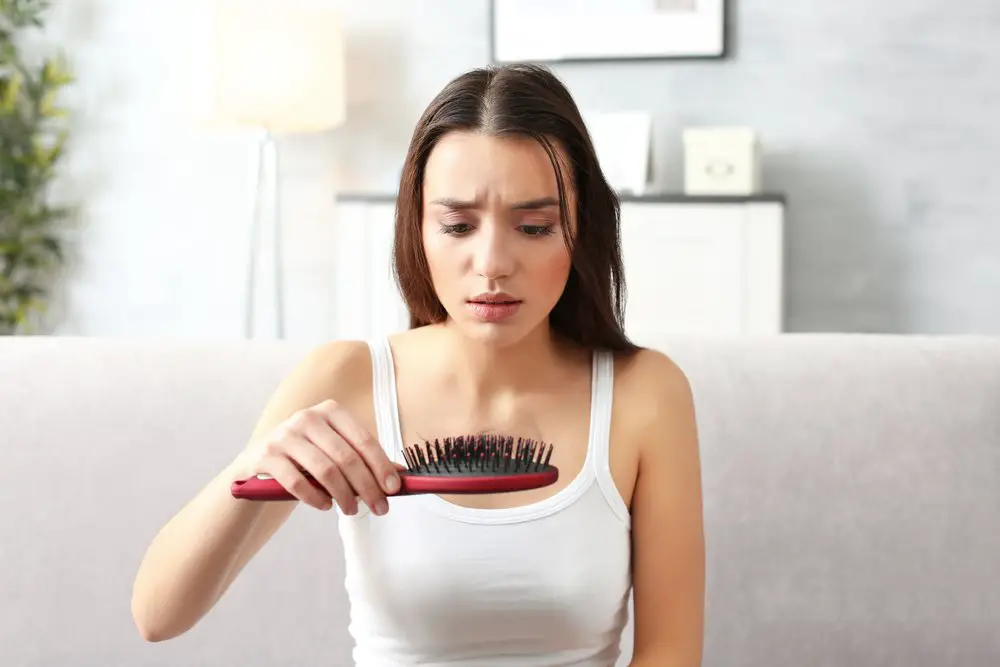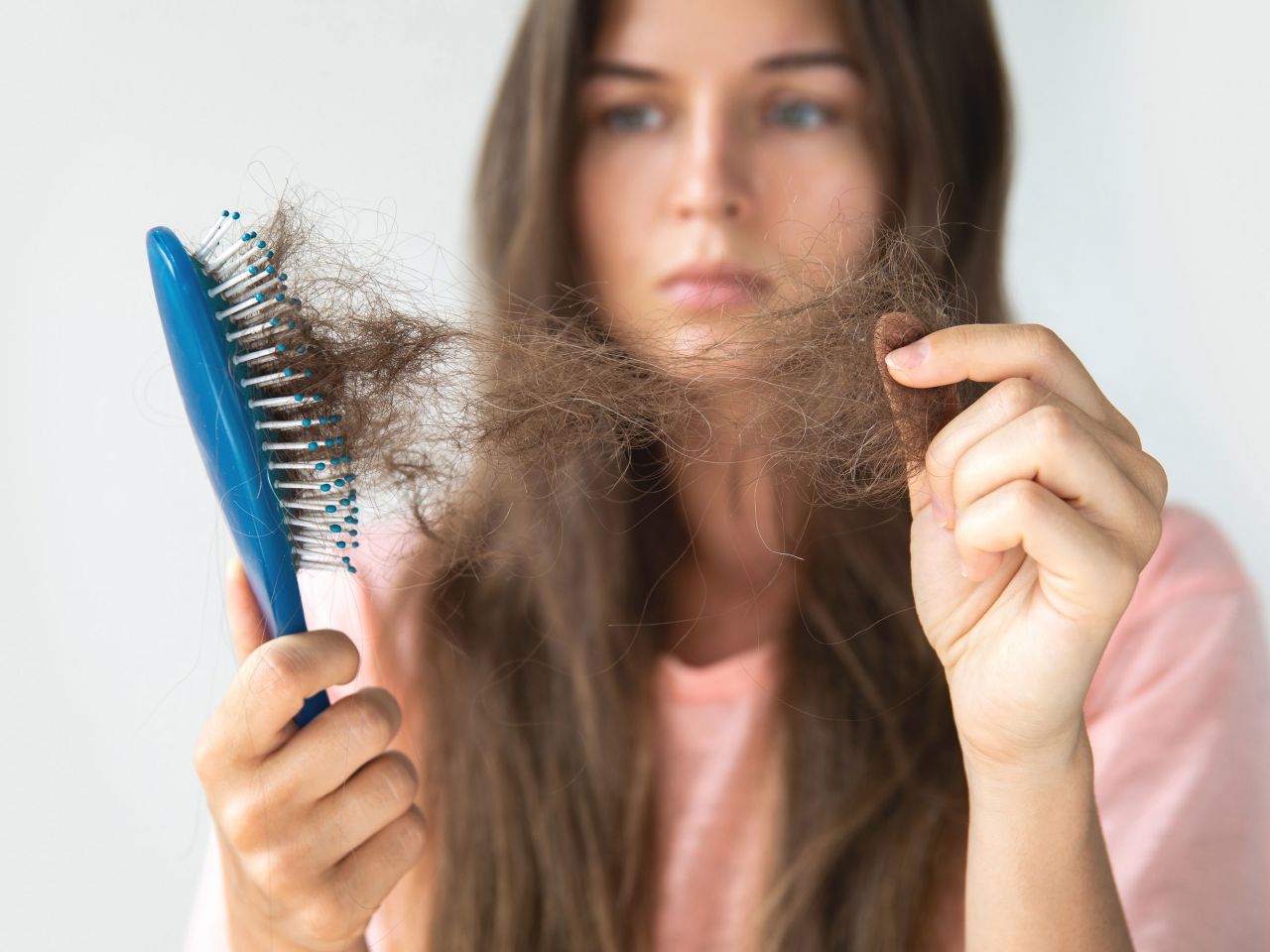Table Of Content

This is particularly the case with telogen effluvium, which normally resolves within six to nine months. It isn’t clear why, but studies have shown that stressful experiences can cut short the anagen phase and push more hairs into the telogen phase. This is why stress is known to be a trigger for this type of hair loss. We have hundreds of thousands of hairs on our head and not all of them are actively growing all of the time. Hairs that are resting are in the “telogen” phase – this means they have stopped growing but will stay on the head for a few more months before falling out.

Mayo Clinic Press
By easing your stress and taking good care of your hair, you can reduce the effects of hair loss. Androgenic alopecia (male pattern baldness and female pattern baldness) is a type of hair loss that’s more gradual than telogen effluvium. Without medications or treatment, hair loss due to androgenic alopecia is permanent. The scientists next examined how corticosterone affects hair follicle stem cells. They found that the stress hormone was not regulating stem cells directly.
Anagen effluvium
Additionally, intense heat from styling products is also considered physical stressors, but this type of hair loss usually comes from the ends breaking off rather than shedding from the scalp. Losing your hair can be a distressing experience, but you’re not alone. Stress is thought to be a trigger that can set off the symptoms of alopecia areata. People who experience patchy hair loss can often recall a stressful event a few weeks before they first started noticing the hair loss. Rapid weight loss due to weight loss surgery, such as gastric bypass, can cause hair shedding about three to six months after the procedure.
Topical treatments
Expert reveals how stress can cause hair loss - Yahoo Lifestyle UK
Expert reveals how stress can cause hair loss.
Posted: Tue, 16 Apr 2024 15:15:00 GMT [source]
This usually isn't noticeable because new hair is growing in at the same time. Hair loss occurs when new hair doesn't replace the hair that has fallen out. After the three- to six-month shedding period, you’ll notice new hair growth in your affected areas.
The role of vitamins and minerals in hair health: Essential nutrients for strong and healthy hair
Whether you're dealing with thinning in certain parts, excessive shedding, or a little bit of both, losing your hair can be incredibly emotionally taxing. Adding insult to injury, there's a lengthy laundry list of things that can cause hair loss. Everything from genetics to styling habits can play a role, and more than one factor is often to blame. That makes figuring out the root cause tricky, and once you understand what's causing your hair loss, treatment usually requires a multi-prong approach. Acute telogen effluvium is self-limiting and will typically resolve once the underlying cause is treated. Some research shows that the medication minoxidil can help people with chronic telogen effluvium.

Managing Stress Slows Pattern Balding
But we're not necessarily talking about day-to-day, chronic types of stress. Rather, it's most often a singular, stressful event that's the culprit. Common examples include illness, surgery, break-ups, deaths, and even childbirth, points out Bhanusali.
It's true that stress can make your hair fall out – here's what you can do about it - The Telegraph
It's true that stress can make your hair fall out – here's what you can do about it.
Posted: Mon, 16 Oct 2023 07:00:00 GMT [source]
This process concentrates platelets in the sample and it is injected back into the patient. Whether caused by genetics, chemotherapy, weight loss surgery, stress, or something else, hair loss can be troubling. Some types of hair loss, especially those related to medical treatments, are reversible. And though not every type of hair loss can be stopped, medications, taking supplements, and using products are among many ways to help stop thinning hair and restore volume. It's typical to lose some hair every day as part of your hair’s usual growth cycle.
Hair transplant surgery involves moving small plugs of skin, each with a few hairs, to bald parts of your scalp. Over-the-counter (OTC) medications generally consist of topical creams, gels, solutions, or foams that you apply directly to the scalp. If they suspect an autoimmune or skin condition, they might take a biopsy of the skin on your scalp. This involves carefully removing several small sections of skin for laboratory testing.
Harvard study IDs mechanism that regenerates hair follicle stem cells
Eventually, the hair that you lost during the stressful event will return. Keep in mind that it can take a very long time to recover the hair you lost. When you are looking at finding a connection between chronic stress and hair loss, you need to focus on the last phase, telogen. When anyone is forced to face a powerful stressor, such as a life-changing event, the body will trigger a large amount of hair to forcibly enter telogen. Examples of life-changing events include divorce, sickness, or even childbirth.
But if you’re losing more than that, it could be a sign of a condition called telogen effluvium, or excessive hair shedding. Alopecia areata involves the body’s immune system attacking the hair follicles in the anagen phase, which forces them to the catagen phase. Because the stem cells in the follicles are not destroyed, the hair follicles continue to regenerate and continue cycling.
And telogen effluvium can certainly be induced by stress, said Dr. Antonella Tosti, a dermatologist who treats hair loss at the University of Miami Miller School of Medicine. There is limited evidence on the effectiveness of treatments for alopecia areata, but dermatologists prescribe topical corticosteroids as the first-line treatment for the condition. The exact cause of trichotillomania remains unknown, but many people report the occurrence of a stressful event before the hair-pulling behavior. Not all hair loss is because of stress, but a person may shed significantly more when they experience extreme stress.
If your hair loss is stress related, your hair follicles haven’t been permanently damaged. Managing your stress and taking good care of your health could result in your hair returning to a normal rate of growth. Telogen effluvium (TE) occurs when there’s a change to the number of hair follicles that are actually growing hair.
Bhanusali adds that many people tend to notice it in the shower when they suddenly start to see excessively large clumps of hair falling out and in the drain. Hair is made of a protein called keratin that is produced in hair follicles in the outer layer of skin. As follicles produce new hair cells, old cells are being pushed out through the surface of the skin at the rate of about 6 inches a year. The average adult head has about 100,000 to 150,000 hairs and loses up to 100 of them a day; finding a few stray hairs on your hairbrush is not necessarily cause for alarm. The good news is that once stress is eliminated, usually your hair will return to its original rhythm and go back to a healthy growth process.
No comments:
Post a Comment